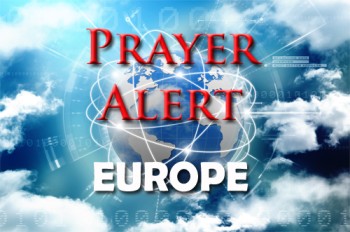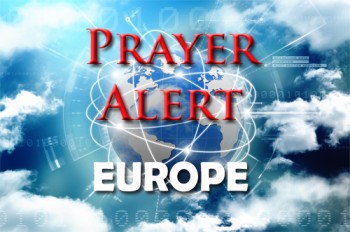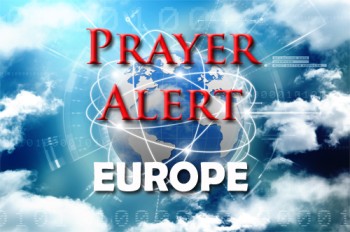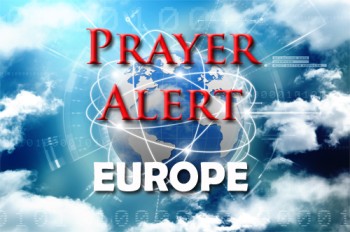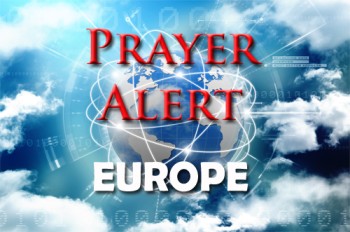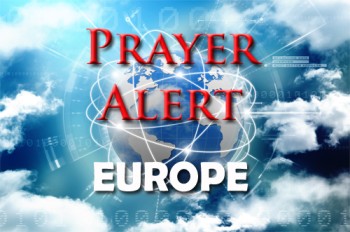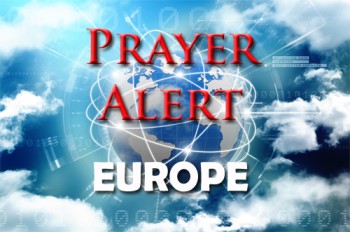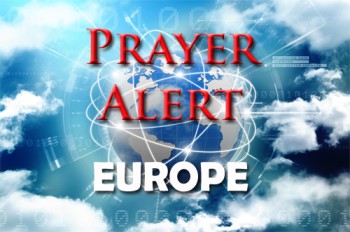EU: tensions flare as Hungary vetoes aid to Ukraine
Tensions flared in Brussels as Hungary vetoed both an emergency EU loan for Ukraine and a new sanctions package against Russia. Foreign minister Péter Szijjártó accused Ukraine of disrupting oil transit through the Druzhba pipeline for political reasons and alleged misleading statements. Ukraine maintains the pipeline was damaged by a Russian drone strike and says repairs are complicated by ongoing attacks. The dispute left financial aid and punitive measures in limbo, frustrating member states supportive of Kyiv. Slovakia aligned with Hungary, intensifying divisions. Critics, who argue that repeated vetoes risk paralysing EU decision-making, have revived debate over reforming unanimity rules. With Hungary facing a heated domestic election campaign, some diplomats believe the standoff is as much political as technical. Meanwhile, Ursula von der Leyen insists that support for Ukraine will continue despite internal discord.
Russia: soldiers describe severe brutality and allege executions
Four Russian soldiers have described severe brutality within their own ranks during the war in Ukraine, including alleged executions of troops who refused orders. In a BBC documentary, two men said they witnessed commanders shoot soldiers at close range for declining to join assaults described as near-suicidal. One claimed he saw about 20 bodies of comrades executed by fellow troops, a practice reportedly referred to in slang as being ‘zeroed’. Another said he was tortured, electrocuted and humiliated after refusing deployment, and that others were forced into repeated, deadly attacks. The men, now in hiding, spoke from an undisclosed location. Moscow has not released official casualty figures (other sources estimate more than a million) and says allegations of misconduct are investigated, insisting its forces act ‘with utmost restraint’. The accounts could not be independently verified, but they add to growing claims about harsh discipline and heavy losses within Russian units.
Ukraine: ceasefire negotiations make no substantial progress
After two days, negotiations between Russia, Ukraine and the USA ended without a ceasefire agreement, highlighting how far apart both sides remain. Discussions addressed military monitoring and possible prisoner exchanges, yet the central dispute over territory continues unresolved. Russia insists on control of the eastern Donbas region, while Ukraine rejects surrendering sovereign land and seeks security guarantees against future invasion. The status of the Zaporizhzhia nuclear power plant also remains contested. After years of war, millions remain displaced and daily attacks continue to endanger civilians. Diplomats describe the talks as substantive but difficult, with further meetings expected. European representatives have struggled to be included in the negotiations, and Zelensky said European participation was ‘indispensible’ for any final agreement. 24 February will be the fourth anniversary of the Russian invasion of Ukraine.
EU leaders face difficult decision on Russian steel
Across Europe, leaders face a difficult decision over Russian steel imports. Although finished steel was banned after the invasion of Ukraine, semi-finished steel continues to enter the EU because several countries rely on it for infrastructure projects. Nearly three million tonnes arrive each year, worth billions of euros. Some lawmakers argue these purchases indirectly strengthen Russia’s war capacity, while others warn that a sudden ban would harm industries and delay construction. Negotiations are now under way to decide whether imports should end immediately or continue until 2028 as previously planned. The debate reveals a deeper struggle: balancing economic stability with moral responsibility during wartime. The outcome could shape Europe’s unity, economic resilience, and witness to justice, reminding believers that political decisions carry spiritual weight.
Southern Baptists bring timeless message to Winter Olympics
Southern Baptists are seizing a remarkable evangelistic opportunity as the 2026 Winter Olympics unfold in Milan / Cortina. International Mission Board (IMB) missionaries serving across Italy have partnered with hundreds of American volunteers to proclaim the hope of Christ to the nations gathered for the Games. Outreach strategies include distributing Bibles and copies of John’s gospel, hosting welcoming hospitality points, and engaging in Olympic pin trading – each pin carrying a QR code linking to a multilingual gospel presentation. Kim Cruse of Tennessee is leading a team and encouraging bold, faith-filled conversations, reminding volunteers that many people are more spiritually open than we assume. Teams have prepared using AI chat tools to practise engaging with varied worldviews. Missionaries Dylan and Isaura Jeronimo-Lancaster are welcoming faithful church partners, reflecting the power of long-term collaboration. Volunteers testify that such global events offer a rare, God-given opportunity to impact lives from every continent with the timeless message of Christ.
Spain / Portugal / Morocco: severe storms contrast with extreme cold in north and east Europe
Severe storms across southern Europe and north-west Africa have forced mass evacuations and widespread emergency responses. Storm Leonardo brought intense flooding to Spain, Portugal and Morocco, with rivers reaching record levels and transport disrupted. In parts of southern Spain thousands fled homes, while northern Morocco evacuated over 140,000 residents as dams filled and rainfall continued. Mountain areas recorded extraordinary totals in little more than a day. A second system, Storm Marta, though less intense, added further rain, strong winds and coastal waves. This contrasts sharply with northern and eastern Europe, where persistent high pressure caused extreme cold and record low temperatures. Meteorologists say the unusual pattern has lasted weeks, steering storms south while trapping cold air elsewhere. Although the rainfall has eased drought conditions in Morocco, communities now face recovery, displacement and rebuilding after damage and loss. Update: Portugal’s interior minister has resigned after criticism of her handling of the storms. See
Italy: sabotage attempts during Winter Olympics
Suspected sabotage on northern Italy’s railway network caused major disruption as crowds gathered for the opening of the Winter Olympic Games. Authorities reported several coordinated incidents, including fires on rail infrastructure, severed electrical cables and a rudimentary explosive device near Bologna, a key national transport hub. Delays stretched for hours across routes linking major cities such as Venice and the Adriatic coast. Officials described the attacks as serious and possibly intended to coincide with the international event, drawing comparisons with similar disruption during the Paris Olympics in 2024. No group has claimed responsibility, and investigations continue while services return to normal. Despite the tension, ceremonies proceeded across multiple venues in Milan and the mountain regions. Italy had earlier foiled cyber-attacks, claimed to be of Russian origin: see
Ukraine: thousands without electricity as peace talks continue
Renewed Russian attacks on Ukraine’s energy infrastructure have left millions without power during freezing winter conditions. Volodymyr Zelensky said more than two hundred repair crews are working around the clock in Kyiv, where over 1,100 apartment buildings remain without electricity. Elsewhere, cluster munition strikes in eastern towns such as Druzhkivka killed civilians and injured many more. The attacks, whose effect was exacerbated by temperatures as low as -20C, followed a week’s pause requested by Donald Trump. Families have sheltered in metro stations, warming centres and makeshift tents as generators are brought in. Energy officials warn repairs will take time, with some key facilities severely damaged. The governor of a Russian town near the border said work was continuing to restore power and water services following a Ukrainian missile strike there earlier in the week. While US, Ukrainian and Russian representatives meet again in Abu Dhabi to discuss a peace plan, there are few signs of progress. As winter deepens, ordinary Ukrainians face exhaustion, grief, and uncertainty alongside continuing violence.
Norway: crown princess’s son on trial for rape
The trial of Marius Borg Høiby, who is the son of crown princess Mette-Marit, has opened in Oslo, drawing national attention. The court heard emotional testimony from the first woman who alleges she was raped at a party in 2018, describing fragmented memory and distress at being drawn into a long-delayed legal process. Borg Høiby faces 38 charges, including four counts of rape, which he denies, maintaining that all encounters were consensual. The alleged incidents occurred after initial consent, with prosecutors arguing that the women were later incapacitated and unable to resist. Although he is not a member of the royal family, the case has intensified pressure on the palace, particularly regarding past links between the crown princess and Jeffrey Epstein. Strict reporting restrictions are in place as the court weighs evidence, credibility and responsibility, in a case that has stirred debate about power, consent, justice and public trust.
Greece: smugglers blamed for fifteen deaths after speedboat collision
The deaths of fifteen Afghan and Moroccan migrants after a speedboat collision on 3 February with a coastguard boat have raised troubling questions about accountability at sea. The Greek authorities were quick to blame smugglers, saying the migrant vessel ignored warnings and manoeuvred dangerously. Yet critics urge caution, pointing to past incidents where official explanations later unravelled. In 2023, hundreds of migrants died when the fishing boat Adriana sank, initially described as unavoidable, before survivors alleged coastguard involvement. Years later, senior officers now face prosecution. In the current case, no testimonies from survivors have yet been made public and no independent video evidence has been released, so that there is uncertainty about what truly happened in the darkness. Greece remains a major entry route into Europe, while its government pursues a tough deterrence policy praised by some voters but condemned by human rights groups. The tragedy highlights the ongoing human cost of migration and the need for truth, transparency and compassion.

